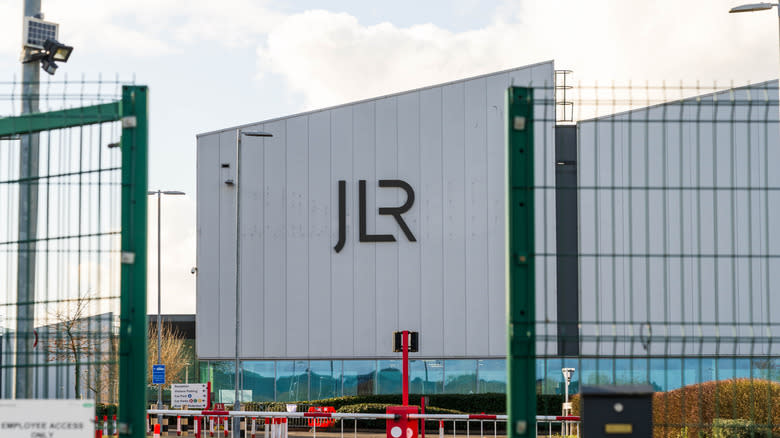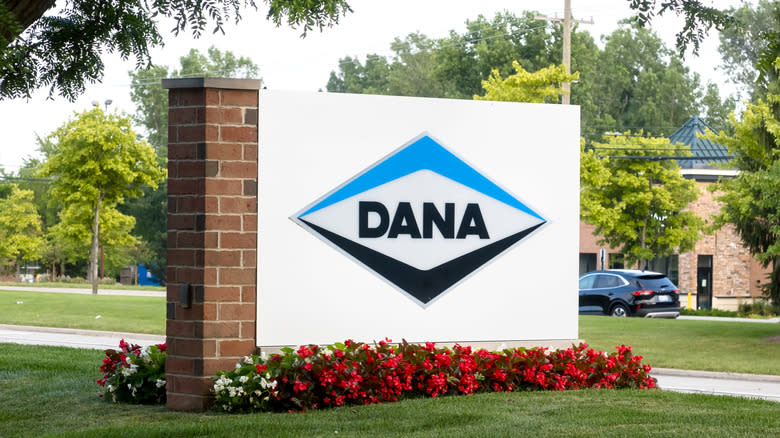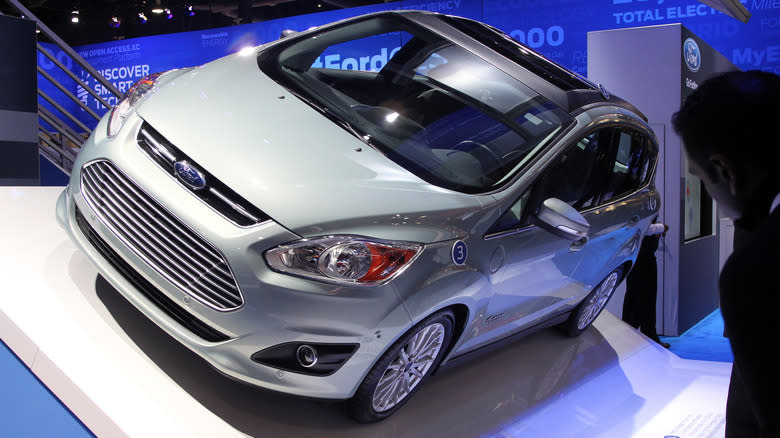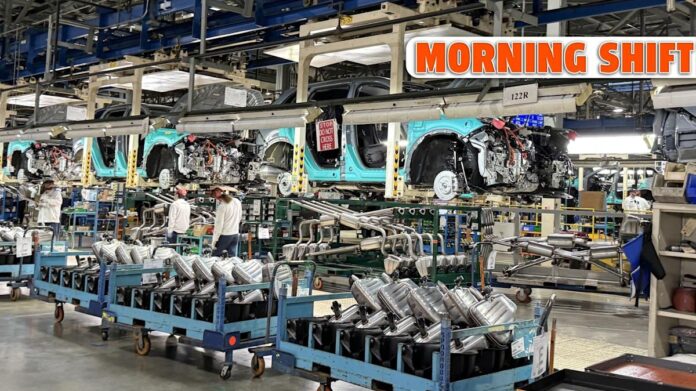Good morning! It’s Wednesday, October 22, 2025, and this is The Morning Shift, your daily roundup of the top automotive headlines from around the world, in one place. This is where you’ll find the most important stories that are shaping the way Americans drive and get around.
In this morning’s edition, the auto industry is gearing up for another semiconductor chip shortage, Jaguar-Land Rover’s cyberattack cost the UK economy over $2.5 billion, an EV auto supplier in Michigan is closing its doors and Ford just recalled 1.4 million vehicles over a single issue.
Read more: Honda Super Cub: All About The History-Making Motorcycle
1st Gear: A chip shortage is brewing and ready to mess up vehicle production
Ford Kentucky Truck – Andy Kalmowitz / Jalopnik
Hey, so you know how vehicle production is already a mess and cars are already super expensive? Well, get ready for all of that to get worse. A group representing major automakers warned that another chip shortage is coming, thanks to a dispute between the governments of China and the Netherlands. It could quickly impact auto production in the U.S.
Earlier this month, automakers and suppliers received notice from chipmaker Nexperia that it could no longer guarantee deliveries of its chips, according to the EU’s auto association. The association also said manufacturing could be significantly disrupted. This is just great, isn’t it? From Reuters:
In the United States, the Alliance for Automotive Innovation, which represents General Motors, Toyota, Ford, Volkswagen, Hyundai, and nearly all other major automakers, urged a quick resolution.
“If the shipment of automotive chips doesn’t resume – quickly – it’s going to disrupt auto production in the U.S. and many other countries and have a spillover effect in other industries,” said the group’s CEO John Bozzella. “It’s that significant.”
Some automakers told Reuters that U.S. auto plants could be affected as soon as next month. They declined to be named due to the sensitivity of the issue.
The chips made by Nexperia are crucial to production of U.S. parts and vehicles.
Here’s how everything fell apart between the Chinese and Dutch governments:
The Dutch government announced on [October 12] that it had as of September 30 taken control of Chinese-owned computer chipmaker Nexperia, citing worries about the possible transfer of technology to Nexperia’s Chinese parent company, Wingtech.
Court documents showed the Dutch government’s move came after months of rising U.S. pressure on the company. Nexperia was at risk of being impacted by a new U.S. rule that extends export control restrictions to companies at least 50% owned by one or more entities on the U.S. entity list.
Washington put Wingtech, which has 100% ownership of Nexperia, on the U.S. list in late December.
The Chinese commerce ministry issued on October 4 an export control notice prohibiting Nexperia China and its subcontractors from exporting specific finished components and sub-assemblies manufactured in China, according to a statement Nexperia published on Tuesday.
Right now, it’s not really clear how all of this is going to shake out, but I’m almost positive it won’t be good for consumers like you and me. I’m sure you all remember the last chip shortage in the wake of the pandemic. There were massive constraints put on vehicle production, and even once cars were able to start getting out the door, many of them were shipped without features they’d otherwise have, like heated seats and automatic windows.
2nd Gear: JLR cyberatack cost the UK economy billions

Jaguar-Land Rover – Richard OD/Shutterstock
The cyberattack against Jaguar-Land Rover looks to have cost the British economy about $2.55 billion and impacted over 5,000 businesses, according to a report published by the Cyber Monitoring Centre, an independent cybersecurity body made up of industry specialists. Production was down at JLR’s global plants for a little more than five weeks after the attack.
While production is slowly coming back online now, the report did say that the amount of money lost could grow if there are further unexpected delays to the restoration of production. From Reuters:
“This incident appears to be the most economically damaging cyber event to hit the UK, with the vast majority of the financial impact being due to the loss of manufacturing output at JLR and its suppliers,” the report said.
[…]
The CMC, which is funded by the insurance industry and categorises the financial impact of major cybersecurity incidents affecting British businesses, ranked the JLR hack as a Category 3 systemic event, out of a scale of five.
The CMC’s estimate “reflects the substantial disruption to JLR’s manufacturing, to its multi-tier manufacturing supply chain, and to downstream organisations including dealerships,” the report said.
[…]
JLR, which analysts estimated was losing around 50 million pounds per week from the shutdown, was provided with a 1.5 billion pound loan guarantee by the British government in late September to help it support suppliers.
Earlier this month, Jaguar-Land Rover brought manufacturing back online after it had been shut down since September 1. The automaker has three factories in the U.K. and one in Slovakia that produce about 1,000 vehicles per day.
3rd Gear: Driveline supplier Dana closes Michigan plant, lays off 200

Dana logo – SNEHIT PHOTO/Shutterstock
Automotive supplier Dana Thermal Products is closing its plant in Auburn Hills, Michigan and laying off 200 workers because of weak demand for electric vehicles and changing priorities within the industry. The company moved to permanently cut all employees at the plant starting October 9 and continuing through January 31, according to a WARN notice filed with the state that is required for mass layoffs and plant closures. From Automotive News:
“I can confirm that we have made the difficult decision to close our manufacturing facility located on Giddings Road in Auburn Hills, MI as a direct result of the unexpected and immediate reduction in customer orders driven by lower demand for electric vehicles, which has rendered continued operations at the plant no longer viable,” Dana spokesman Craig Barber said in a statement to Automotive News affiliate Crain’s Detroit Business.
The Maumee, Ohio-based supplier’s traditional business is supplying drivelines to automakers such as Ford Motor Co., its largest customer. Alongside those customers, Dana invested heavily in EVs a few years ago when Ford and General Motors went all in on battery electric, predicting fast-growing demand and big volumes for parts suppliers.
In August of 2022, Dana announced plans to invest $54.2 million and create 200 jobs by the end of 2024 at the EV battery cooling plant that is now set to close permanently. At the time, it said the investment would include $4 million of leasehold improvements to upfit the space and $40 million of equipment, including brazing, stamping and post-powder coating lines.
That’s all down the drain now, along with 200 American jobs.
4th Gear: 1.4 million Fords recalled for rearview camera issue

Ford C-Max – Chris Farina/Getty Images
Ford is recalling about 1.45 million vehicles in the U.S. because of a rearview camera issue, and it’s going to extend warranty coverage on millions of other vehicles. Somehow, this isn’t even the biggest rearview camera recall Ford has issued in the last few weeks. In September, Ford recalled 1.9 million vehicles around the world because of faulty reverse cameras. Oh, Ford. What are we going to do with you? From Reuters:
The new recall comes after the National Highway Traffic Safety Administration in January asked Ford about complaints of camera failures, prompting the automaker to investigate.
Recalled vehicles may have cameras that have distorted, intermittent or blank images when in reverse, increasing the risk of a crash.
The recall covers various 2015 through 2020 model year Explorer, Escape, Mustang, Flex, Fiesta, C-Max, Taurus, Fusion and Lincoln MKT and MKZ vehicles. Dealers will inspect and replace cameras as needed.
In September, NHTSA and Ford agreed on a plan to address the population of all vehicles built between 2015 and 2025 with analog cameras in two categories: some would be recalled and the remainder would be covered by a level customer satisfaction program that includes a 15-year extended warranty on rear cameras.
Ford did not immediately say how many vehicles are covered by the extended warranty but it includes more than two dozen vehicle models including 2015-2020 F-150 trucks.
Ford says it is aware of about 12,500 warranty claims and five accidents tied to camera issues. Luckily, no one has been injured. In November of last year, Ford agreed to a $165 million civil penalty after a NHTSA investigation found the company had failed to recall vehicles with defective rearview cameras in a timely manner.
For those keeping score at home, this is Ford’s 126th recall of the year. No other automaker has more than 40.
Reverse: Dammit, Lance

History.com
I would have thought that someone who appeared in the 2004 smash hit Dodgeball: A True Underdog Story would have more integrity than this, but I guess not. It’s a damn shame. If you want to learn more about Armstrong and this whole fiasco, head over to History.com.
On the radio: Ethel Cain – American Teenager
Here’s what everyone is listening to today. Got it? Good. If I see you on the street, and you’re not listening to Ethel Cain, we’re going to have big problems, buddy.
Want more like this? Join the Jalopnik newsletter to get the latest auto news sent straight to your inbox, and add us as a preferred search source on Google.
Read the original article on Jalopnik.
Nexperia, Jaguar-Land Rover, chip shortage, Ford, auto industry
#Chip #Shortage #Coming #Screw #Vehicle #Production

